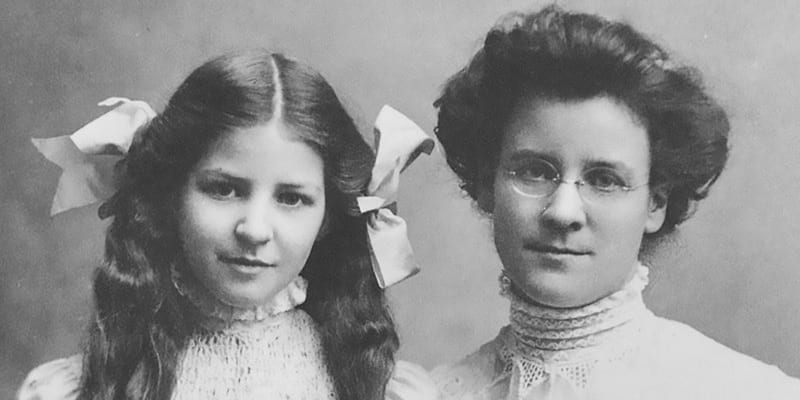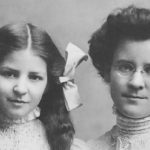Isabel Myers biography, quotes and books

Isabel Myers (Isabel Briggs Myers; 18 October 1897 – 5 May 1980) was an American author and psychological theorist who created together with her mother the personality type test Myers Briggs Type Indicator. Today, the tool is one of the most widely used self-assessment tools. It is additionally within NLP referred to as basic metaprogram, a program that drives our behavior based on external factors and influence that ways in which we function in the world. This article covers Isabel Myers’ biography, quotes and books.
Isabel Myers biography
Isabel Myers was born in the United States and grew up in Washington, D.C.
She is the daughter of Katharine Briggs who first became interested in different personality types. Her father Lyman J. Briggs worked as a research physicist.
As like as her mother, Isabel Myers was home-schooled by her mother before she went to college. Her mother had let her read and write about anything she was interested in before she went to Swarthmore College.
During this period, Isabel Myers met her future husband, Clarence Chief who was studying law. The couple later married in 1918 and lived in Philadelphia together with their two children Peter Briggs Myer and Ann Myer Hughes. Unfortunately, Ann Myer Hughes did not survive a surgery in 1972.
Isabel Myers’ mother recognized that Clarence Chief Myers personality was different than other people in the family, which consequently increased her interest to study different types of characters. Her mother started conduction research and made her own theories because she could not find relevant research which answered her questions.
Isabel Myers’ mother later found Carl Jung’s book ‘Psychological Types’ which enabled Katharine Briggs to research more in-depth different personality types.
Isabel Myer next got interested in a psychological test which was designed to match the type of work with personality characters. She additionally identified that the people she was surrounded by performed jobs they did not like.
From this moment, she collaborated with her mother Katharine Briggs attempting to identify different personality types.
Even though her mother already made her own theories, Isabel starts making hand-written questionnaires. She and her mother next continued the research, but Isabel made it also possible to collaborate with various stakeholders.
Through her contacts, she got authorized by Edward N. Hay, an executive of a Philadelphia bank, to work with previous personnel tests to get familiarized with test constructions.
She was additionally lucky because her father, now dean of the George Washington School, allowed her to provide the Myers Briggs Type Indicator to the first-year students of the school. She next gathered data from dozens of nursing schools of approximately 10.000 students.
As a result of the samples at the nursing schools, the president of Educational Testing Service heard of the personality test. From this moment, it was permitted to evaluate the Myers Briggs Type Indicator for research purposes.
The popularity of the test slowly increased, and by 1970, the Myers Briggs Type Indicator was more and more used and appreciated. Students of Michigan State University started to work with the personality test, and Isabel Myer could now meet the people who work with her self-assessment tool.
In this period, Isabel Myers met Mary McCauley, a psychologist and later a member of the faculty of the University of Florida. Mary McCauley discovered the personality test in the Buros Mental Measurement Yearbook, a book designed to assist professionals in selecting and using standardized tests.
Course: the Complete Guide To The Myers-Briggs Type Indicator (MBTI)
She was fascinated by the instrument and immediately contacted Isabel Myers to establish collaboration for further research. Their goal was to test unpublished work and identify next steps for improvements on personality types.
From this moment, Isabel Myers’ work started to raise more publicity. National Myers Briggs Type Indicator conferences were held at various universities, including the University of Florida in 1975, Michigan State University in 1977, and another university in Philadelphia in 1979.
The Myers Briggs Type Indicator was now for the first time an officially available tool for helping people, provided by Consulting Psychologists, Inc. Isabel co-founded at the same time the Center for Applications of Psychological Type, a not-for-profit organization that maintains research and application of the Myers Briggs Type Indicator.
Isabel Myers revised the instrument from 1975 to 1979 to create a simpler test, even though she faced health problems. She finalized her book ‘Gift Differing’ and remained actively dedicated to more publicize her research.
She spent her life devoted to researching different personality types of which her mother Katharine Briggs provided the foundation for the research.
Isabel Myers realized the vision of her mother by finalizing the research. The Myer Briggs Type Indicator is today translated into more than thirty languages and can, for example, be applied for personal development, improving communications, teambuilding, and reorganizations.
Isabel Myers quotes
- “The best-adjusted people are the ‘psychologically patriotic,’ who are glad to be what they are.”
- “You psychologists focus on what is wrong with people; I want to focus on what is right and what could be right.”
- “Introverted feeling types have a wealth of warmth and enthusiasm, but they may not show it until they know someone well. They wear their warm side inside, like a fur-lined coat.”
- “Although intelligence tests are usually speed tests for the sake of convenience, it is debatable whether speed has any rightful place in the basic concept of intelligence.”
- “What children need is the conviction that satisfaction can and must be earned. … Spoiled children do not learn the must.”
- “Whatever the circumstances of your life, the understanding of type can make your perceptions clearer, your judgments sounder, and your life closer to your heart’s desire.”
- “Extraverts … cannot understand life until they have lived it. Introverts … cannot live life until they understand it.”
- “For many Extraverts, “hell at a party” is “not being able to get in.” Many introverts see it as “being there.”
- “Intuitives tend to define intelligence as “quickness of understanding” and so prejudge the case in their own favor, for intuition is very quick.”
Publications and Books
- 1995. Gifts differing: Understanding personality type.
- 1980. Gifts differing.
- 1979. Type and teamwork. Center for Applications of Psychological Type.
- 1977. The Myers-Briggs Type Indicator: Supplementary Manual. Consulting Psychologists Press.
- 1976. Introduction to type®. CPP.
- 1976. Introduction IO Type. Center for Applications of Psychological Type, Gainesville, Fl.
- 1974. Type and teamwork. Gainesville, FL: Center for Applications of Psychological Type.
- 1974. Relevance of type to medical education. Paper to be included in” The Myers-Briggs Type Indicator in Medical Education.
- 1967. Relation of Psychological Type to Dropout in Nursing. Gaineville, Fla: Center for the Applications of Psychological type.
- 1964. Relation of medical students’ psychological type to their specialties twelve years later. Center for Applications of Psychological Type.
- 1962. The Myers-Briggs Type Indicators. Princeton, New Jersey: Educational Testing Service.
- 1962. Inferences as to the dichotomous nature of Jungs types, from the shape of regressions of dependent-variables upon Myers-Briggs Type Indicator Scores. In American Psychologist(Vol. 17, No. 6, pp. 364-364). 750 FIRST ST NE, WASHINGTON, DC 20002-4242: AMER PSYCHOLOGICAL ASSOC.
- 1958. Some findings with regard to type and manual for Myers-Briggs Type Indicator, Form E. Swarthmore, Pa.: Author.
- 1945. Type as the index to personality. Swarthmore, Pa.: Author.
How to cite this article:
Zeeman, A. (2018). Isabel Myers. Retrieved [insert date] from Toolshero: https://www.toolshero.com/toolsheroes/isabel-myers/
Original publication date: 12/14/2018 | Last update: 02/26/2024
Add a link to this page on your website:
<a href=”https://www.toolshero.com/toolsheroes/isabel-myers/”>Toolshero: Isabel Myers</a>











